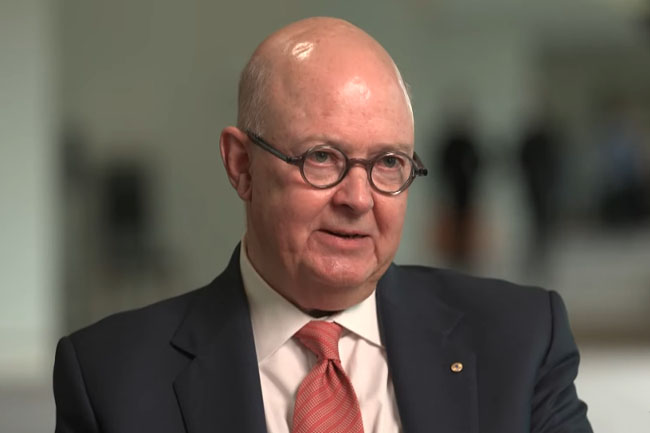Even with the steep decline of Fairfax and APN, the future of Australian investigative journalism looks bright with the emergence of publications like IA, says Rodney E. Lever.
The head of the once massive and wealthy Fairfax newspaper publishing organisation, Greg Hywood, has presented himself to Fran Kelly on the ABC to discuss the future of newspapers and to announce that Fairfax-Rinehart is forced to turn digital and compete in what is now a thriving and exciting market open to anyone and everyone.
His views were interesting. It is amazing that Fairfax has taken so long to realise that the golden stream of cash that kept it going for nearly 200 years has gone dry. This is not to criticise Hywood. It is the shuffling board of directors of this company, most with very little insight into the craft of journalism, that has finally brought this once great company to its knees.
The same has happened to Australian Provincial Newspapers (APN), whose board was marched out of the building after years of dithering. Two heavies from Ireland, who happened to control the majority of shares, arrived to try to wring something out of the wreckage that is left from the major provincial newspaper company in this region.
They have, in the course of a few years, seen the value of their shares drop from around $7 to 25 cents.
This leaves the international print newspaper giant known in Australia as News Limited with a potential 100 per cent control of all Australian printed news.
At the same time, online news has gone from strength to strength, with international online publishers now entering the Australian market, though asking for money to read their offerings.
About two years ago, I recognised Independent Australia, with its free business model (with some contributions from readers who can afford it), as better than all the other online services and why I offered to write articles for them. It is growing faster than other publications because it recognises that all news should be free.
The thing that has been lacking in Australia since the 1950’s is good investigative journalism. Investigative journalism came to a screaming halt when the young Rupert Murdoch bullied his way into the business and built his own organisation after the Herald and Weekly Times stopped him from assuming his dead father’s mantle.
To his credit, Rupert is a clever gambler with no scruples whatsoever, and was able to able to buy up failing newspapers very cheaply and turn them into scandal sheets with pretty young women presenting their naked bosoms to the readers on Page 3 every day. Add a few celebrity scandals and some titillating photographs and you will always acquire a readership. It’s a formula used all over the world, probably most successfully by the American “tits and bums” millionaire Hugh Hefner, when he added pubic hair.
As I have written before in IA, I knew Rupert very well during the first 20 years of his career. I was not the first journalist to realise that Rupert knew nothing whatsoever about real journalism. I can remember him walking around the building one day demanding to know whether The Australian should have column rules or not. When he asked me, I’m afraid I laughed at him and said:
“You choose, you’re the boss.”Today, I see those videos of Rupert poring over front pages and type galleys and messing around with them. In all my time with Rupert, about 20 years, I never saw him in a composing room or near a printing press except when a camera was around.
Above all, Rupert hated investigative reporting. To him, reporters were wasting his time and money spending days investigating matters that could have been of great concern to readers. He stopped all investigative reporting dead.
When he took over the greatest investigating newspaper of all time, the British Sunday Times, he sacked the editor and all the investigative staff — who had a long record of revealing vital stories that, in some instances, may have saved thousands of lives.
He may never have known that, in the 1950s, an investigation carried out by a reporter on Sydney's Daily Telegraph, named Patrick Davidson, was responsible for closing down not only the ghastly Callan Park lunatic asylum in Sydney, but ultimately every other outrageously cruel and ineffective mental asylum in Australia.
From the time Murdoch began his career, no Callan Park or Watergate style or Ashby-Brough investigations were allowed in his papers.
It was the quality and intensity of investigative reporting that attracted me to Independent Australia. Rooting our evil in our society has always been, to me, the most important purpose of journalism — subject only to the qualities of truth and accuracy.
With the collapse of the print newspaper industry, many journalists will be looking for work. My advice would be to form a small group of well-trained reporters and set up a service where investigative material could be provided to the online publishers for a fee. A team could be working on several subjects for several clients.
The point being that top investigative journalists could earn better salaries than ever before by serving online producers who do not have the enormous costs of production that print newspapers require. The price of a good story should rise accordingly with rival online entrepreneurs competing for them.
Were I back in my young days of journalism, it is what I would be doing today.
Nothing could be more exciting or satisfying, Who knows what we could drag up? Assignments might range from crooked politicians to incompetent medical practitioners, greedy insurance companies, paedophile priests, sleazy lawyers, fixed sporting competitions .... the list goes on and on. It would be providing a vital public service that should be available in every community.
This major generational change to the way we absorb the news can only be good for Australia. There will be more competition, fierce competition, and more choice, and a need for more skilful and honest reporting. There will be a broader range of opinion.
There will always be political leaks and politicians who twist and turn the truth, but good reporting and fact checking will find them out. Good investigative reporting will expose crooks and villains long before the police can track them down.
And best of all, online news is a field which Rupert Murdoch tried and failed ignominiously, so we don’t have to worry about him anymore. He is worth just a few paragraphs in Australia’s history.









